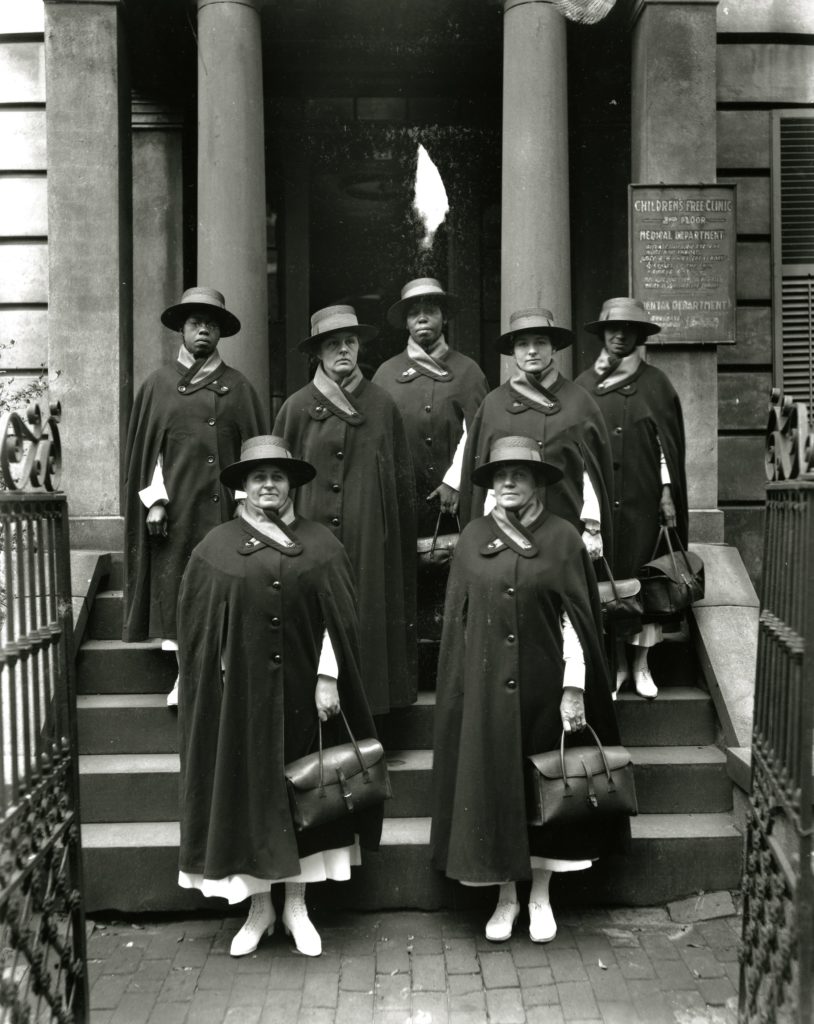
Inspired by the theme presented by the National Women’s History Alliance for National Women’s History Month (NWHM) 2019, “Visionary Women: Champions of Peace and Nonviolence,” and in partnership with the League of Women Voters of Coastal Georgia, this month’s editions of Collection Highlights explore the role of Georgia women “who have led efforts to end war, violence, and injustice and pioneered the use of nonviolence to change society.”
Health Center nurses in front of a building at Charlton and Drayton Streets, Foltz Photography Studio (Savannah, Ga.), photographs, 1899-1960, MS 1360
In the late 19th century social reforms led to many changes in society. With rapid changes in understanding public health, reformers encouraged people to take more of an active role in their health and the health of their families. Often shut out of medical schools that were reserved for male physicians, women’s employment in professional nursing grew in popularity after the American Civil War.
In this photo female nurses stand in front of the Louisa Porter Home at the corner of Charlton and Drayton Streets in Savannah, Georgia in 1922. The Louisa Porter Home, named in appreciation for Louisa Porter Gilmer, former president of Telfair Hospital for Females, housed a health center, as well as provided housing for the poor and destitute of Savannah. Although not identified, these nurses were most likely employed by a public nursing service established by Chatham County commissioners in 1922. Prior to 1922 in Georgia, nurses often worked for private, charitable, or volunteer organizations such as the Mary MacLean Association.
The Mary MacLean Association, first named “Mary McLean Circle of Kings’ Daughters and Sons”, and later the “Mary MacLean Milk Depot and Visiting Nurses Association” was organized in 1903 by a group of young women. The Association furnished bedside nursing care to the indigent of the community, carried out a health education program, chiefly for the mothers of young children, gave nursing services at child care centers, and cooperated with the city in furnishing every type of nursing service to the community. In 1910 the Association established a Milk Depot where milk was sold at reduced prices to indigent families and was run out of a small wooden outhouse at the Louisa Porter Home. Like those pictured here, female nurses were vital to providing public health services in a time when those services were not readily available to all members of a community.
*If you know or can identify someone in this photo please share the information with the Georgia Historical Society.
History of Public Health Nursing in Georgia, the Georgia Department of Public Health
Jacob Florance and Louisa Porter Gilmer Minis photograph album
Louisa Porter Foundation records
Mary Maclean Milk Depot and Visiting Nurses Association records
